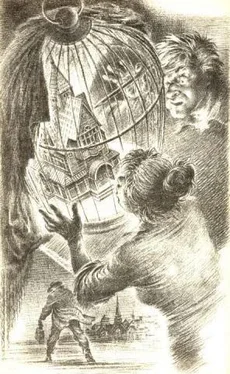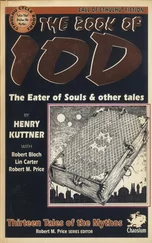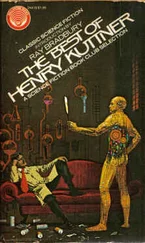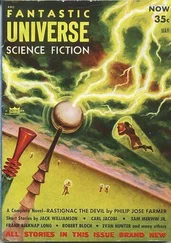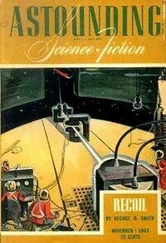Henry Kuttner - Housing Problem
Здесь есть возможность читать онлайн «Henry Kuttner - Housing Problem» весь текст электронной книги совершенно бесплатно (целиком полную версию без сокращений). В некоторых случаях можно слушать аудио, скачать через торрент в формате fb2 и присутствует краткое содержание. Жанр: Юмористическая фантастика, на английском языке. Описание произведения, (предисловие) а так же отзывы посетителей доступны на портале библиотеки ЛибКат.
- Название:Housing Problem
- Автор:
- Жанр:
- Год:неизвестен
- ISBN:нет данных
- Рейтинг книги:5 / 5. Голосов: 1
-
Избранное:Добавить в избранное
- Отзывы:
-
Ваша оценка:
- 100
- 1
- 2
- 3
- 4
- 5
Housing Problem: краткое содержание, описание и аннотация
Предлагаем к чтению аннотацию, описание, краткое содержание или предисловие (зависит от того, что написал сам автор книги «Housing Problem»). Если вы не нашли необходимую информацию о книге — напишите в комментариях, мы постараемся отыскать её.
Housing Problem — читать онлайн бесплатно полную книгу (весь текст) целиком
Ниже представлен текст книги, разбитый по страницам. Система сохранения места последней прочитанной страницы, позволяет с удобством читать онлайн бесплатно книгу «Housing Problem», без необходимости каждый раз заново искать на чём Вы остановились. Поставьте закладку, и сможете в любой момент перейти на страницу, на которой закончили чтение.
Интервал:
Закладка:
HOUSING PROBLEM
Henry Kuttner
Jacqueline said it was a canary, but I contended that there were a couple of lovebirds in the covered cage. One canary could never make that much fuss. Besides, I liked to think of crusty old Mr. Henchard keeping lovebirds; it was so completely inappropriate. But whatever our roomer kept in that cage by his window, he shielded it—or them—jealously from prying eyes. All we had to go by were the noises.
And they weren’t too simple to figure out. From under the cretonne cloth came shufflings, rustlings, occasional faint and inexplicable pops, and once or twice a tiny thump that made the whole hidden cage shake on its redwood pedestal-stand. Mr. Henchard must have known that we were curious. But all he said when Jackie remarked that birds were nice to have around, was “Claptrap! Leave that cage alone, d’ya hear?”
That made us a little mad. We’re not snoopers, and after that brush-off, we coldly refused to even look at the shrouded cretonne shape. We didn’t want to lose Mr. Henchard, either. Roomers were surprisingly hard to get. Our little house was on the coast highway; ‘the town was a couple of dozen homes, a grocery, a liquor store, the post office and Terry’s restaurant. That was about all. Every morning Jackie and I hopped the bus and rode in to the factory, an hour away. By the time we got home, we were pretty tired. We couldn’t get any household help—war jobs paid a lot better—so we both pitched in and cleaned. As for cooking, we were Terry’s best customers.
The wages were good, but before the war we’d run up too many debts, so we needed extra dough. And that’s why we rented a room to Mr. Henchard. Off the beaten track with transportation difficult, and with the coast dimout every night, it wasn’t too easy to get a roomer. Mr. Henchard looked like a natural. He was, we figured, too old to get into mischief.
One day he wandered in, paid a deposit; presently he showed up with a huge Gladstone and a square canvas grip with leather handles. He was a creaking little old man with a bristling tonsure of stiff hair and a face like Popeye’s father, only more human. He wasn’t sour; he was just crusty. I had a feeling he’d spent most of his life in furnished rooms, minding his own business and puffing innumerable cigarettes through a long black holder. But he wasn’t one of those lonely old men you could safely feel sorry for—far from it! He wasn’t poor and he was completely self-sufficient. We loved him. I called him grandpa once, in an outburst of affection, and my skin blistered at the resultant remarks.
Some people are born under lucky stars. Mr. Henchard was like that. He was always finding money in the street. The few times we shot craps or played poker, he made passes and held straights without even trying. No question of sharp dealing—he was just lucky.
I remember the time we were all going down the long wooden stair way that leads from the cliff-top to the beach. Mr. Henchard kicked at a pretty big rock that was on one of the steps. The stone bounced down a little way, and then went right through one of the treads. The wood was completely rotten. We felt fairly certain that if Mr. Hen-chard, who was leading, had stepped on that rotten section, the whole thing would have collapsed.
And then there was the time I was riding up with him in the bus. The motor stopped a few minutes after we’d boarded the bus; the driver pulled over. A car was coming toward us along the highway and, as we stopped, one of its front tires blew out. It skidded into the ditch. If we hadn’t stopped when we did, there would have been a head-on collision. Not a soul was hurt.
Mr. Henchard wasn’t lonely; he went out by day, I think, and at night he sat in his room near the window most of the time. We knocked, of course, before coming in to clean, and sometimes he’d say, “Wait a minute.” There’d be a hasty rustling and the sound of that cretonne cover going on his bird cage. We wondered what sort of bird he had, and theorized on the possibility of a phoenix. The creature never sang. It made noises. Soft, odd, not-always-birdlike noises. By the time we got home from work, Mr. Henchard was always in his room. He stayed there while we cleaned. On week-ends, he never went out.
As for the cage .
One night Mr. Henchard came out, stuffing a cigarette into his holder, and looked us over.
“Mph,” said Mr. Henchard. “Listen, I’ve got some property to ‘tend to up north, and I’ll be away for a week or so. I’ll still pay the rent.”
“Oh, well,” Jackie said. “We can—”
“Claptrap,” he growled. “It’s my room. I’ll keep it if I like. How about that, hey?”
We agreed, and he smoked half his cigarette in one gasp. “Mm-mm. Well, look here, now. Always before I’ve had my own car. So I’ve taken my bird cage with me. This time I’ve got to travel on the bus, so I can’t take it. You’ve been pretty nice—not peepers or pryers. You got sense. I’m going to leave my bird cage here, but don’t you touch that cover!”
“The canary—” Jackie gulped. “It’ll starve.”
“Canary, hmm?” Mr. Henchard said, fixing her with a beady, wicked eye. “Never you mind. I left plenty o’ food and water. You just keep your hands off. Clean my room when it needs it, if you want, but don’t you dare touch the bird cage. What do you say?”
“Okay with us,” I said.
‘Well, you mind what I say,” he snapped.
That next night, when we got home, Mr. Henchard was gone. We went into his room and there was a note pinned to the cretonne cover. It said, “Mind, now!” Inside the cage something went rustle-whirr. And then there was a faint pop.
“Hell with it,” I said. “Want the shower first?”
“Yes,” Jackie said.
Whirr-r went the cage. But it wasn’t wings. Thump!
The next night I said, “Maybe he left enough food, but I bet the water’s getting low.”
“Eddie!” Jackie remarked.
“All right, I’m curious. But I don’t like the idea of birds dying of thirst, either.”
“Mr. Henchard said—”
“All right, again. Let’s go down to Terry’s and see what the lamb chop situation is.”
The next night—Oh, well. We lifted the cretonne. I still think we were less curious than worried. Jackie said she once knew somebody who used to beat his canary.
“We’ll find the poor beast cowering in chains,” she remarked flicking her dust-cloth at the windowsill, behind the cage. I turned off the vacuum. Whish—trot-trot-trot went something under the cretonne.
“Yeah—” I said. “Listen, Jackie. Mr. Henchard’s all right, but he’s a crackpot. That bird or birds may be thirsty now. I’m going to take a look.”
“No. Uh—yes. We both will, Eddie. We’ll split the responsibility.” I reached for the cover, and Jackie ducked under my arm and put her hand over mine.
Then we lifted a corner of the cloth. Something had been rustling around inside, but the instant we touched the cretonne, the sound stopped. I meant to take only one swift glance. My hand continued to lift the cover, though. I could see my arm moving and I couldn’t stop it. I was too busy looking.
Inside the cage was a—well, a little house. It seemed complete in every detail. A tiny house painted white, with green shutters— ornamental, not meant to close—for the cottage was strictly modern. It was the sort of comfortable, well-built house you see all the time in the suburbs. The tiny windows had chintz curtains; they were lighted up, on the ground floor. The moment we lifted the cloth, each window suddenly blacked out. The lights didn’t go off, but shades snapped down with an irritated jerk. It happened fast. Neither of us saw who or what pulled down those shades.
Читать дальшеИнтервал:
Закладка:
Похожие книги на «Housing Problem»
Представляем Вашему вниманию похожие книги на «Housing Problem» списком для выбора. Мы отобрали схожую по названию и смыслу литературу в надежде предоставить читателям больше вариантов отыскать новые, интересные, ещё непрочитанные произведения.
Обсуждение, отзывы о книге «Housing Problem» и просто собственные мнения читателей. Оставьте ваши комментарии, напишите, что Вы думаете о произведении, его смысле или главных героях. Укажите что конкретно понравилось, а что нет, и почему Вы так считаете.
